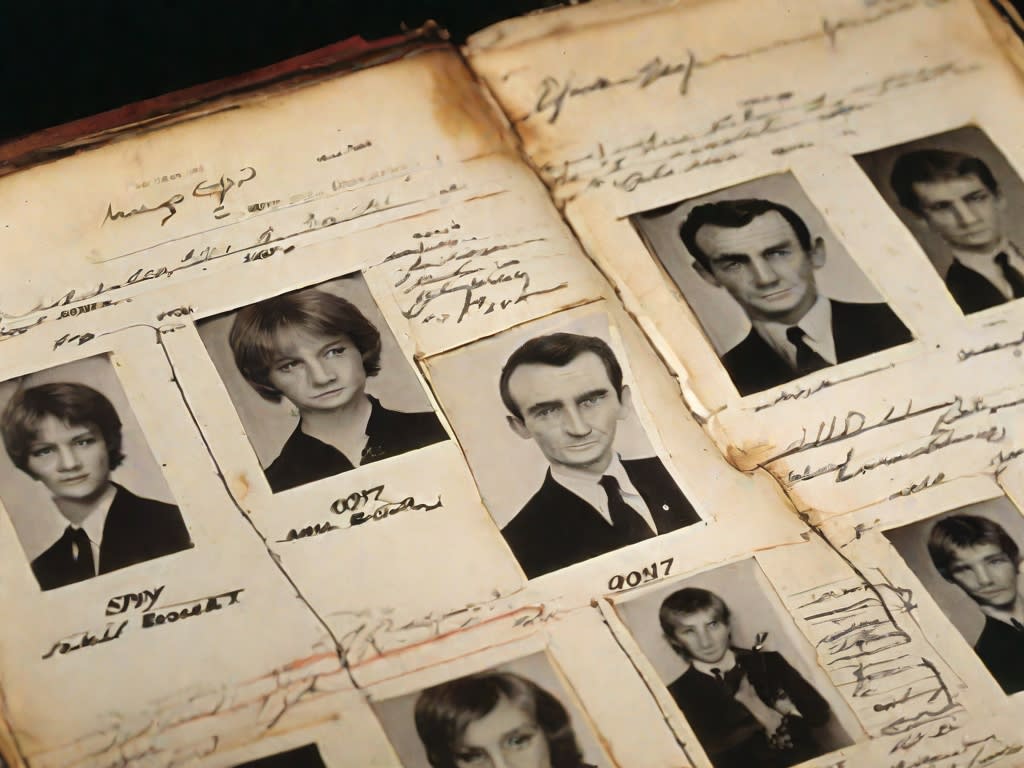James Bond: A Legacy of Spies
Exploring the Idea of 'James Bond' as a Code Name

For nearly six decades, the name "James Bond" has been synonymous with the suave, martini-drinking, womanizing spy known for saving the world from various villains. However, what if we were to challenge the very foundation of this iconic character and consider "James Bond" as more than just the name of one individual? What if it were a code name passed down through generations of British secret agents? This intriguing concept has the potential to breathe new life into the beloved franchise and add layers of complexity to the character.
Introduction: Rethinking James Bond
The world of cinema is filled with iconic characters, but few are as enduring and beloved as James Bond. Created by author Ian Fleming in the early 1950s, the fictional British secret agent has become a cultural phenomenon, gracing the pages of novels and thrilling audiences on the silver screen. Over the years, the portrayal of Bond has evolved with changing societal norms and cinematic trends. However, the core essence of the character has remained remarkably consistent: a debonair spy with a penchant for danger, fast cars, beautiful women, and sophisticated gadgets.
But what if we were to question the very identity of James Bond? What if the name "James Bond" was not the exclusive property of one individual, but rather a code name, a designation that has been passed down from one secret agent to another throughout the years? This intriguing concept, which challenges the traditional understanding of Bond as a single person, has the potential to introduce a new dimension to the character, enriching the already intricate world of espionage, intrigue, and international adventure.
A Legacy of Spies: The Multi-Generational Bond
One of the most fascinating aspects of reimagining "James Bond" as a code name is the idea that it has been carried by multiple agents over time. Each "James Bond" would be a unique individual with their own backstory, personality, and set of skills. This approach allows for the exploration of diverse character developments and backgrounds, offering an exciting range of storytelling possibilities.
In the traditional James Bond narrative, the character is often portrayed as a larger-than-life figure, capable of superhuman feats and always equipped with the latest gadgets and vehicles. While this portrayal has its charm, it can sometimes distance the character from reality. By acknowledging the existence of multiple agents assuming the identity of James Bond, we can introduce a new layer of complexity to the character.
Imagine "James Bond" as a title awarded to the most exceptional British secret agent of each generation. This agent would carry the legacy of those who came before, inheriting not only the name but also the expectations, experiences, and knowledge of previous Bonds. Each new Bond would be shaped by the events and challenges of their time, resulting in distinct interpretations of the character.
The Eternal Youth of James Bond
Throughout the history of the James Bond films, one recurring puzzle has been the character's ability to remain perpetually youthful, regardless of the passage of time. By adopting the concept of "James Bond" as a code name, we can attribute this timeless quality to the role itself. This character never ages, as it is assumed by different agents in different eras.
While the idea of a perpetually youthful James Bond has always been a source of charm for the franchise, it has also been a subject of playful speculation. Fans have theorized about secret rejuvenation treatments, advanced technology, or even supernatural explanations for Bond's agelessness. The code name concept offers a more straightforward and elegant solution to this enduring mystery.
Changing of the Actors: A Seamless Transition
In the traditional Bond films, different actors have portrayed James Bond over the years. By embracing the code name idea, the transitions between actors become seamless within the narrative. Each new actor is not replacing a previous Bond; they are merely the latest agent to take on the mantle of "James Bond."
This approach mitigates the need for elaborate explanations regarding changes in the actor's appearance or demeanor. The character is no longer tied to a single individual but is instead a role that can be assumed by various actors, each bringing their interpretation to the table. This freedom allows for greater diversity and innovation in the casting of James Bond, ensuring that the character remains dynamic and adaptable to the changing landscape of cinema.
Varied Character Interpretations
Every "James Bond" could bring a fresh interpretation to the character. While some may choose to stick to the classic spy archetype, others may explore different facets of the role, making it more adaptable to evolving storytelling needs. This flexibility can keep the character relevant and relatable to audiences of different generations.
For instance, one "James Bond" may embrace the traditional characteristics of the character—charming, confident, and reliant on state-of-the-art gadgets. Another "James Bond" might deviate from this template, portraying a more introspective, introspective, or gritty agent who relies on his intelligence and resourcefulness rather than an array of gadgets.
These variations in character interpretations can cater to the evolving tastes and expectations of audiences. A darker, more introspective Bond may resonate with viewers in search of a complex and emotionally nuanced character, while a classic interpretation may cater to those who crave the traditional charm and wit of the spy.
The Flexible Continuity
One of the challenges of long-running film franchises is maintaining consistent continuity. With the code name approach, the stories can be more self-contained, allowing for more creativity in the plotlines without being burdened by complex overarching narratives. This flexibility enables filmmakers to tell a wide variety of spy stories, from traditional espionage thrillers to more unconventional adventures.
In the traditional Bond franchise, the need for continuity often led to intricate, interconnected storylines and recurring characters. While this provided a sense of depth and interconnectedness, it could also be constraining, limiting the possibilities for fresh and innovative narratives.
By shifting to a model where each "James Bond" operates in his own self-contained story, the franchise can explore a broader range of storytelling possibilities. It becomes easier to experiment with different genres, tones, and settings, keeping the Bond universe fresh and unpredictable.
James Bond: The Ultimate Spy
With each new "James Bond" audiences can expect to see a different facet of the ultimate spy. Some agents may excel in gadgetry and technological prowess, while others may rely more on physical prowess and hand-to-hand combat. The character can evolve and adapt to the changing landscape of espionage and international intrigue.
This adaptation goes beyond the capabilities and skills of the agent. It encompasses the character's approach to relationships, ethics, and the moral complexities of the spy trade. Different "James Bonds" may have distinct moral compasses, leading to diverse decisions and actions throughout their respective missions.
In essence, the concept of "James Bond" as a code name can make the character richer and more multifaceted, offering new perspectives on the timeless figure of the British spy. Whether the story calls for a cerebral mastermind or a charismatic action hero, the code name concept permits the franchise to cater to a wide range of cinematic tastes.
Unraveling the Mystery
One exciting element of the code name concept is the potential for plot twists and revelations. Perhaps in a future film, it is disclosed that there have been multiple "James Bonds" operating simultaneously or that a former Bond has been working against MI6's interests. These twists could inject new life and unpredictability into the franchise.
Imagine a story where a former Bond, who was thought to be dead, resurfaces as an antagonist, challenging the loyalties and allegiances of the current Bond. This narrative twist not only adds depth to the characters but also raises intriguing questions about trust, betrayal, and the ethics of espionage.
Conclusion: Embracing the Evolution of a Legend
In conclusion, the idea of "James Bond" as a code name presents a unique opportunity to reinvent and revitalize the iconic character. While it challenges the long-standing tradition of a single, continuous James Bond, it opens the door to a wealth of storytelling possibilities and allows the character to remain a timeless figure in the world of espionage.
Whether embraced or rejected by fans, this concept provides a fresh perspective on the legendary British spy. As the saying goes, "The name's Bond, James Bond," but who that agent is may forever remain a thrilling mystery. This new approach preserves the essence of Bond while embracing the ever-evolving nature of cinema and storytelling, ensuring that the legacy of 007 continues to captivate and surprise audiences for generations to come.
About the Creator
Adrian Wordsmith
Embark on a literary adventure with me, a passionate writer and storyteller. Let's unlock mysteries, explore emotions, and find solace in the power of words. Join the journey!






Comments
There are no comments for this story
Be the first to respond and start the conversation.